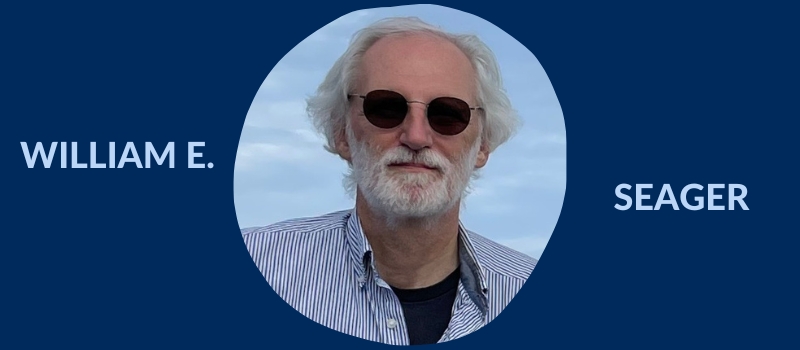
Immense congratulations to Professor Emeritus William E. Seager for his recent appointment as a Fellow of the Royal Society of Canada—a prestigious distinction reserved for the country’s most distinguished scholars, artists, and scientists. The RSC’s website describes Seager as “one of the world’s leading philosophers of mind” whose original and “impactful research addresses foundational metaphysical issues concerning the nature of consciousness and of mental representation. He is a principal defender of the view that consciousness is a fundamental feature of the world that cannot be explained in terms drawn from other scientific theories.”
While Seager, with characteristic humility, described the first sentence of the Royal Society’s citation as “embarrassingly hyperbolic,” he acknowledged the “great honour” of becoming an RSC Fellow. “As a retired professor, it is wonderful to have one’s work recognized by such an esteemed body,” he says, adding: “And since I don’t intend to give up my research life, it is also providessome compelling motivation for my continued philosophical pursuits.”
Seager has spent the grand majority of his career thinking through the problem of consciousness. Eventually, he says, this work led him to “the seemingly inevitable conclusion that consciousness must be in some way a basic, fundamental feature of reality.” Lately, however, he has returned to William James’s concept of “radical empiricism.” It holds that what is fundamental is simply what is present, and that “conscious minds are structures of presence (what James called ‘pure experience’).” Physical objects, in this view, are simply differently organized structures of presence. There’s a lot to maneuver here, Seager feels, and he hopes “to work out some coherent system based on this idea.”
Dialogue and collaboration, whether through theoretical engagement or by actively working with and alongside other scholars, seem fundamental to philosophy for Seager. His work, he emphasizes, has depended “on that of many others. I have immense gratitude to them and the ongoing project which is philosophy. They say that feeling part of something biggerthan yourself is important for contentment, and philosophy is very big.” Content and inspired, he looks forward to continuing his research and may fruitful conversations. We cannot wait to see what results from them.
This year, the Royal Society of Canada elected 101 new Fellows, 13 of them faculty members at the University of Toronto. Read here about another one of them, Paul Thompson, from the Institute for the History and Philosophy of Science (IHPST).
SHARE
